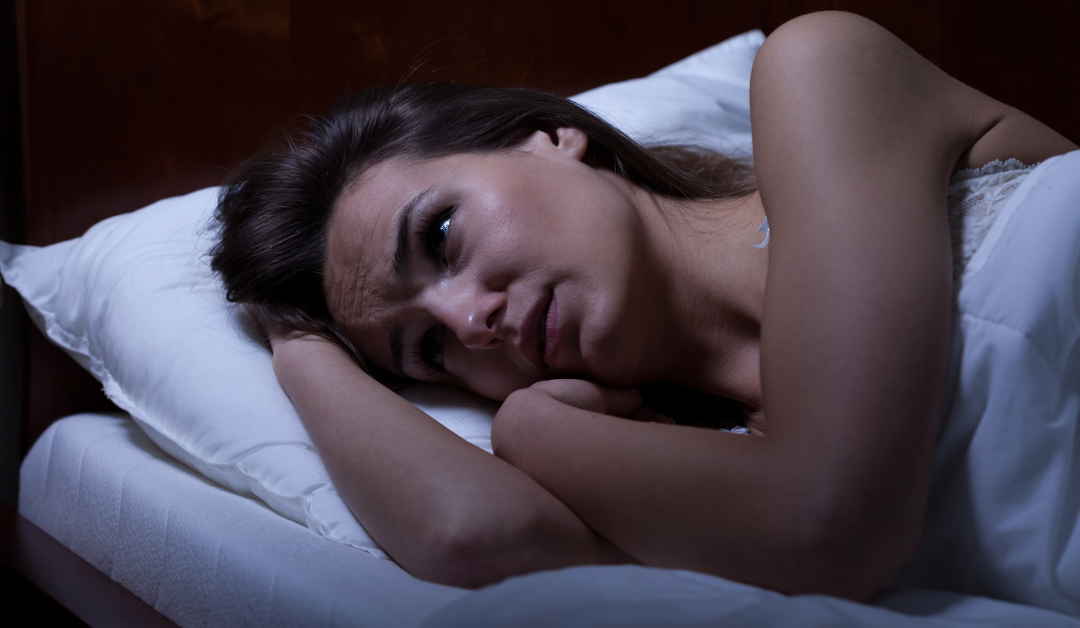Sleep is an essential part of our daily routine, and it plays a vital role in maintaining our physical and mental health. Unfortunately, sleeping with anxiety can severely impact the quality and quantity of our sleep, leading to a vicious cycle of sleep deprivation and heightened anxiety levels. In this blog, we will explore the effects of anxiety on sleep and provide practical tips and techniques to help you get more restful and restorative sleep.
Whether you suffer from occasional or chronic anxiety, these tips will help you take control of your sleep and improve your overall well-being.
So, let’s dive in and learn how to overcome anxiety and get the restful sleep you need and deserve!
Anxiety can significantly affect sleep. Here are a few ways sleeping with anxiety can impact you:
- Difficulty falling asleep: Anxiety can make it difficult to relax and fall asleep. Racing thoughts, worries, and physical symptoms like a rapid heartbeat can make it challenging to wind down at night.
- Waking up during the night: People with anxiety may wake up in the middle of the night with racing thoughts or physical symptoms like sweating, shaking, or a racing heartbeat.
- Poor quality sleep: Anxiety can lead to a restless night’s sleep, leaving people feeling groggy and tired the next day.
- Insomnia: Chronic anxiety can lead to insomnia, a condition in which people have difficulty falling or staying asleep. Insomnia can be a vicious cycle, as sleep deprivation can worsen anxiety symptoms.
- Nightmares: Anxiety can also cause vivid nightmares or night terrors, which can disrupt sleep.
Here are some tips to help you manage anxiety and improve the quality of your sleep:
- Develop a bedtime routine: Establish a calming bedtime routine that helps you relax and wind down before bed. This may include journaling, reading a book, or practicing relaxation techniques like deep breathing or meditation.
- Create a peaceful sleep environment: Make sure your bedroom is quiet, cool, and dark. Use comfortable bedding and pillows and minimize noise and distractions.
- Avoid stimulants: Avoid consuming caffeine, alcohol, and nicotine close to bedtime as they can interfere with your ability to sleep.
- Exercise regularly: Exercise during the day can help reduce anxiety and improve sleep quality. However, avoid exercising close to bedtime as it can make it harder to fall asleep.
- Practice relaxation techniques: Incorporate relaxation techniques like deep breathing, progressive muscle relaxation, or guided imagery into your bedtime routine to help reduce anxiety and promote sleep.
In conclusion, sleeping with anxiety can be challenging, but there are many strategies you can use to improve the quality of your sleep. Avoiding caffeine, writing down your thoughts before bed, and getting regular exercise are other helpful tips to manage anxiety and promote restful sleep.
Remember to be patient with yourself and seek professional help if your anxiety is interfering with your ability to sleep. With time and effort, you can manage your anxiety and improve the quality of your sleep.
Because Life is All About Connections
Life Connections provides in-home Behavioral Health Intervention services, Therapy services, autism (ABA) services and Children’s Mental Health waiver services in our 13 office locations and approved schools across Iowa. Life Connections was founded in March of 2009 with the intent to serve the children and families of Cedar Rapids and surrounding cities.
Life Connections is a highly professional and caring counseling and behavioral health provider. We offer a wide array of services to treat mental health issues.
For more information and support, please Contact Us
Start Your Services
Start Mental & Behavioral Health Services with Life Connections | Because life is all about connections.

